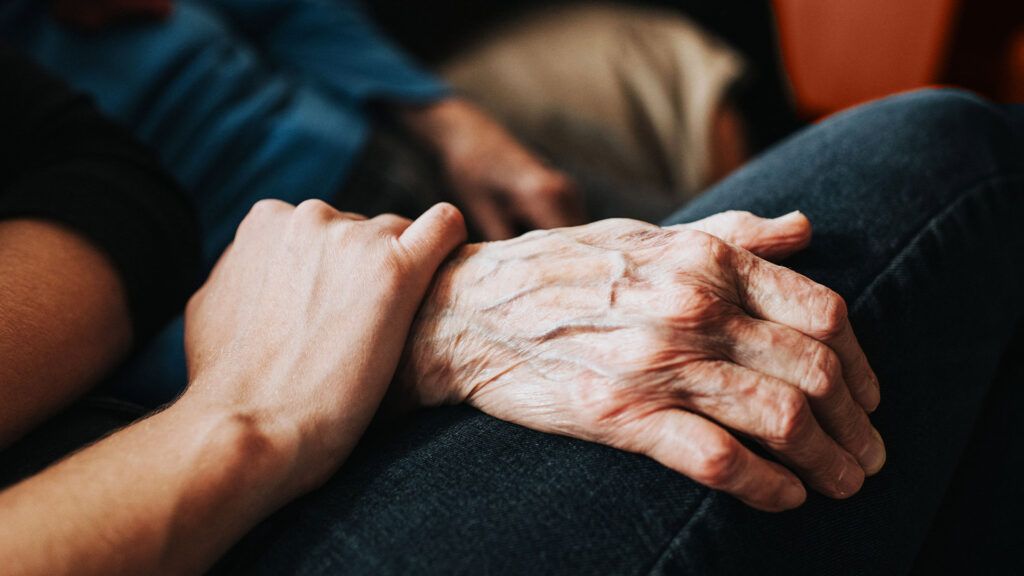Why does the hand get tired as the body gets old?
We see - if the elderly try to hold something, their hands will be numb. However, fear, stress, low blood pressure, anxiety (worry) can affect the hands or body of people of any age group. However, the reason for hand tremors in old age is different.
This is a problem that most people have after reaching old age. Due to this kind of problem, it is difficult for them to do normal work. It is uncomfortable to hold a brush, brush your teeth, eat anything with a spoon or hand, take medicine, or put on clothes.
This kind of condition is called 'movement disorder'. That is, body parts, especially hands, cannot work properly. This happens when the nervous system that connects the arms, legs and brain is relaxed.
Control and direction of the brain is necessary for any work done by our senses. For this, the nervous system exchanges communication between those parts of the body and the brain. When the nervous system that connects to an organ does not work properly, it affects that organ. This is also one of the reasons for hand tremors in old age.
We consider Parkinson's disease to be one of the main problems in old age in the long term. According to a report, Parkinson's is the second leading disease of old age after Alzheimer's. It is estimated that it has afflicted seven to ten million people worldwide.
What is Parkinson's disease?
The brain has a part called 'Basal Ganglia' to control the body's activities. With increasing age, the nerve cells in that area either die or undergo degeneration, so that the ability to produce the chemical dopamine is also affected.
Due to the lack of dopamine production, not only the hands and feet tremble, but the body becomes sluggish, the speech becomes slurred, and the body is unable to work. Because of this, the muscles, joints and other parts of the body are affected. This disease is seen in 41 per 100,000 people after the age of 40 and more than 1900 per 100,000 people above the age of 80.
A growing problem
According to the World Health Organization (WHO), the number of people suffering from this disease has doubled in the last 25 years. This is what the statistics in 2019 say. Compared to other neurological diseases, the number of people who become disabled and die from this disease is increasing.
Why is this happening?
The cause of this disease has not yet been discovered. However, in people with this disease, the nerve cells that make the chemical called dopamine, which is essential for controlling muscle movements, gradually degenerate or die.
Dopamine is a chemical messenger that sends signals between two areas of the brain to coordinate activity. If there is a lack of dopamine in this area, the person is unable to direct or control their movements.
As a result, there is very little dopamine in the brain of a person with Parkinson's. As a result, brain function is interfered with. The function of the nerve cells that control the movement decreases and imbalance in physical activity is created. Due to problems such as body stiffness, joint stiffness or difficulty in walking, it causes discomfort even in daily life.
According to the National Institute of Health, Parkinson's also affects the nerves that produce the chemical norepinephrine. The main function of norepinephrine is to control heart rate and blood pressure. If the norepinephrine chemical is reduced, the blood pressure will be disturbed when sitting and standing up and it can affect the digestive system.
Certain factors are believed to be responsible for Parkinson's disease.
Hereditary: According to studies, Parkinson's disease can be caused by certain genetic changes. However, although it is hereditary, only a few are at risk of developing it.
Environmental Effects: People who work and come in contact with toxic substances, pesticides are also at risk of Parkinson's disease. This possibility is also low.
As Parkinson's disease progresses, so do its symptoms. In the later stages of the disease, brain function can often be affected, which can also lead to dementia and depression.
Symptoms
- The first symptom of Parkinson's disease is hand tremors. The affected person has no control.
- As the tremors increase, it becomes difficult to walk and sit, and it becomes difficult for the person to move around.
-Hands, legs and jaws may also be out of balance.
-Muscle becomes jammed.
- The speed of eye blinking decreases.
- The risk of depression or dementia increases.
- Facial expression changes.
These changes gradually appear in the body. Therefore, sometimes it is difficult to recognize its symptoms. This disease usually occurs in elderly people above 60 years of age. This disease is rarely found in young people and adults.
Treatment
Considering the condition of the Parkinson's disease patient, efforts are made to improve the quality of life through medication and therapy to control the symptoms.
Similarly, for mental problems, you can get medicine by having a psychiatrist check you up. However, Parkinson's disease cannot be completely cured.
Surgery is one of the alternative treatments for Parkinson's. In this process, brain surgery is done and brain pace maker is placed, physical activity is brought under control according to one's desire. A brain pacemaker contains a battery that improves brain function. 'Deep Brain Stimulation' i.e. DBS is kept in that battery. That technology artificially stimulates the nerve cells by connecting electrical wires to the brain through electrical waves It helps bring the activity back to normal.

Comments
Post a Comment
If you have any doubts. Please let me know.